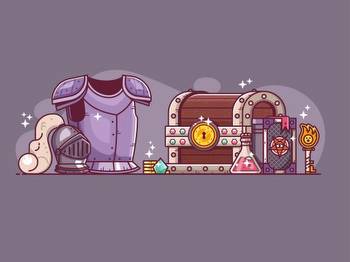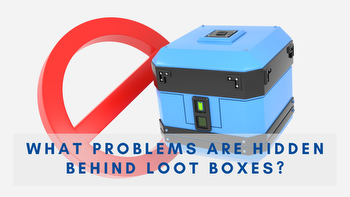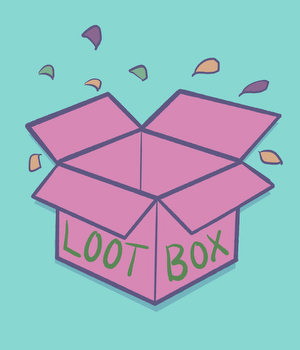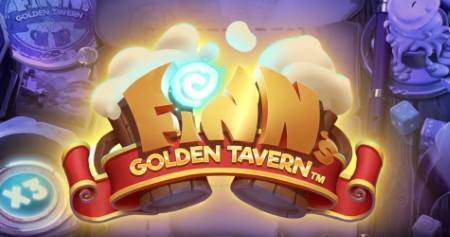Lost Ark: Banned in Belgium Due to Gambling Mechanics

Lost Ark is one of several games released in the last decade that has enjoyed positive traction and reviews — despite being banned in some countries due to potentially nefarious in-game mechanics.
Specifically, Lost Ark’s in-game loot boxes came into conflict with the established online gambling laws in countries like Belgium and the Netherlands. Due to the strict anti-gambling legislation in place in these countries, the game creators were forced to either adapt the game or forfeit those markets entirely.
While the Netherlands ban was eventually lifted and Lost Ark released there after only a few months in limbo, it is unclear why the ban was lifted — because surely if the game itself was changed, the Belgium ban would not still be in place.
Belgium’s Regulatory Landscape – Decoding Gambling Laws in Video Games
In 2018, Belgium declared that in-game loot boxes fall under the Gambling and Betting Act of 1999.
In short, Belgium’s Gaming Commission looked at four different games with purchasable loot boxes (Overwatch, Star Wars Battlefront II, FIFA18, and Counter-Strike: Global Offensive) to investigate whether or not these mechanics conflicted with the Gambling and Betting Act — and found that they did.
The primary factors they were looking at when making this assessment were:
- Whether the opening of loot boxes itself was at all similar to the player playing against “the house” (in this case, the video game developer)
- Whether or not the player can “lose” when playing this game (since some of the random items hold greater usefulness or value than others, getting the less-valuable items can be construed as losing)
- And whether or not there is an unknowable element of chance (the core mechanic loot boxes are built upon).
During their 2018 examination, the Belgium Gaming Commission found that loot boxes did, indeed, meet all criteria and are subject to regulation. This was met with mixed feelings by developers and players alike because the novelty of their inclusion in gaming has become a selling point to more than a few players.
The Novelty and Controversy Behind In-Game Loot Boxes
In the not-so-distant past, the gaming industry saw a massive paradigm shift with the introduction of loot boxes. Originally introduced to MapleStory (another fantasy online role-playing game) in 2004 as a way to enhance player experience and monetize what was otherwise a free-to-play game, loot boxes quickly spread and transformed from being a rather innocuous addition to the center of a heated two-decades-long controversy.
The promise of a randomized reward proved too much for players to resist — and consequently, too much for developers to resist, with most gaming companies trying to find new ways to generate revenue after release.
Many players found themselves unable to stop, eager to obtain rare or coveted virtual assets and contribute more of their hard-earned money to what is effectively a digital lottery.
However, the novelty soon wore off, and the ethical implications of loot box mechanics began to come into question, especially as more and more developers sequestered end-game progression behind what was essentially a randomized paywall.
Critics argued that the randomized nature of these containers too closely resembled gambling games, especially when so much real money is involved.
These objections gained weight as stories came to light of individuals — including young children — spending exorbitant amounts on loot boxes chasing after rare items and power-ups, drawing parallels to the risks associated with traditional gambling.
Lost to Belgium – How Lost Ark and Other Games Fell Afoul of Belgium’s Regulations
While the team behind Lost Ark decided against pursuing the appropriate licensing and making whatever in-game adjustments required to comply with Belgium’s regulations — opting instead not to release in that market in any capacity — there are plenty of other games that have retooled their systems to comply.
For example, Blizzard Entertainment’s popular competitive shooter game, Overwatch, was able to continue marketing itself in Belgium after the Gaming Commission’s ruling by disabling the ability to buy loot boxes to players with a Belgian IP address.
The loot boxes made available by hitting in-game milestones are still there, but players were no longer able to spend money to buy additional loot boxes — which were only filled with cosmetic items anyway, ensuring Belgian players still had the same competitive edge as every other player.
Other games, like Electronic Arts’ Star Wars Battlefront II, saw so much pushback from Belgium’s Gaming Commission — and players alike — that they temporarily disabled in-game purchases altogether.
This, combined with some ill-received comments from one community manager on Reddit, caused a PR nightmare for Electronic Arts — a developer already known for excessive use of microtransactions — and ultimately caused them to rebuild their progression system from the ground up.
Loot Box Bans and Their Impact on the Gaming Industry
It remains to be seen whether or not nationwide bans of hidden gambling mechanics like loot boxes will have any lasting impact on the video game industry.
The severity of pushback by customers and regulatory agencies alike has inspired some developers to move away from the paid loot box mechanic entirely, while others have committed to only ever offering cosmetic items to avoid incentivizing players to spend more and more money to gain a competitive edge — a common issue in the mobile gaming industry.
Even if loot boxes are removed entirely, some critics are concerned that the next phase in monetization will be even worse — the beginnings of which we’re already seeing in the forms of paid subscription-style battle passes with random rewards given out as milestones reached in-game and similar mechanics.
As games move away from one-time-purchase software into something akin to an ongoing service, developers are looking for any way to draw funds from long-term players.
International Approach to Video Game Gambling Regulations
While Belgium’s strict “No Loot Box” stance has certainly made waves in the industry — despite questions about its effectiveness — other countries are slower to take up the banner or are downright unwilling to draw any lines in the sand.
In one example, Australia has not banned the inclusion of gambling in video games but instead requires that the games be rated 18+.
This does not stop parents from buying these games for their children, nor does it prevent children from using their parent’s credit cards to make in-game purchases. Instead, it seeks to provide clarity to parents on what to expect in the game, hoping they take more active roles in the media their children consume, provide a guiding hand along the way, and maybe catch any problematic gaming behaviors early.
Japan, on the other hand, has banned what is known as “gacha” monetization, which locks game progression behind random paid rewards — such as not being able to further the storyline in a game without a specific set of gear that is acquired piecemeal through loot boxes.
In China, all developers must list all loot box rewards and outline their probability of dropping. This is done in the hope that players can make more informed purchase decisions. The country has also put legislation in place that limits the number of loot boxes that can be purchased in an attempt to curtail problematic behaviors.
The Future of Loot Boxes Remains Murky
Whether or not Belgium’s ban on Lost Ark has contributed to the game’s decline in popularity is unknown, but we have already seen the changes in the gaming landscape brought about by more countries stepping up and speaking out against the inclusion of what amounts to an obfuscated slot machine in our video games.
Likewise, the long-term effect of loot boxes has yet to be seen, so the severity of the situation remains unknown. However, it’s likely that, as more problematic adult behavior can be traced back to childhood hobbies like gaming, features like loot boxes will find themselves in the crosshairs in many countries.
But until such a time has come to pass, we will have to do our best to educate ourselves and our children to ensure that all purchases made are done responsibly and without spending more than we can afford to wager.





































